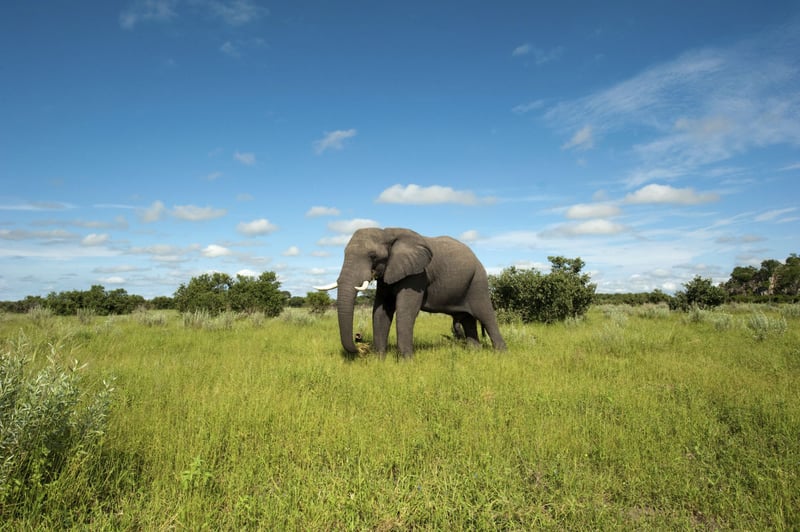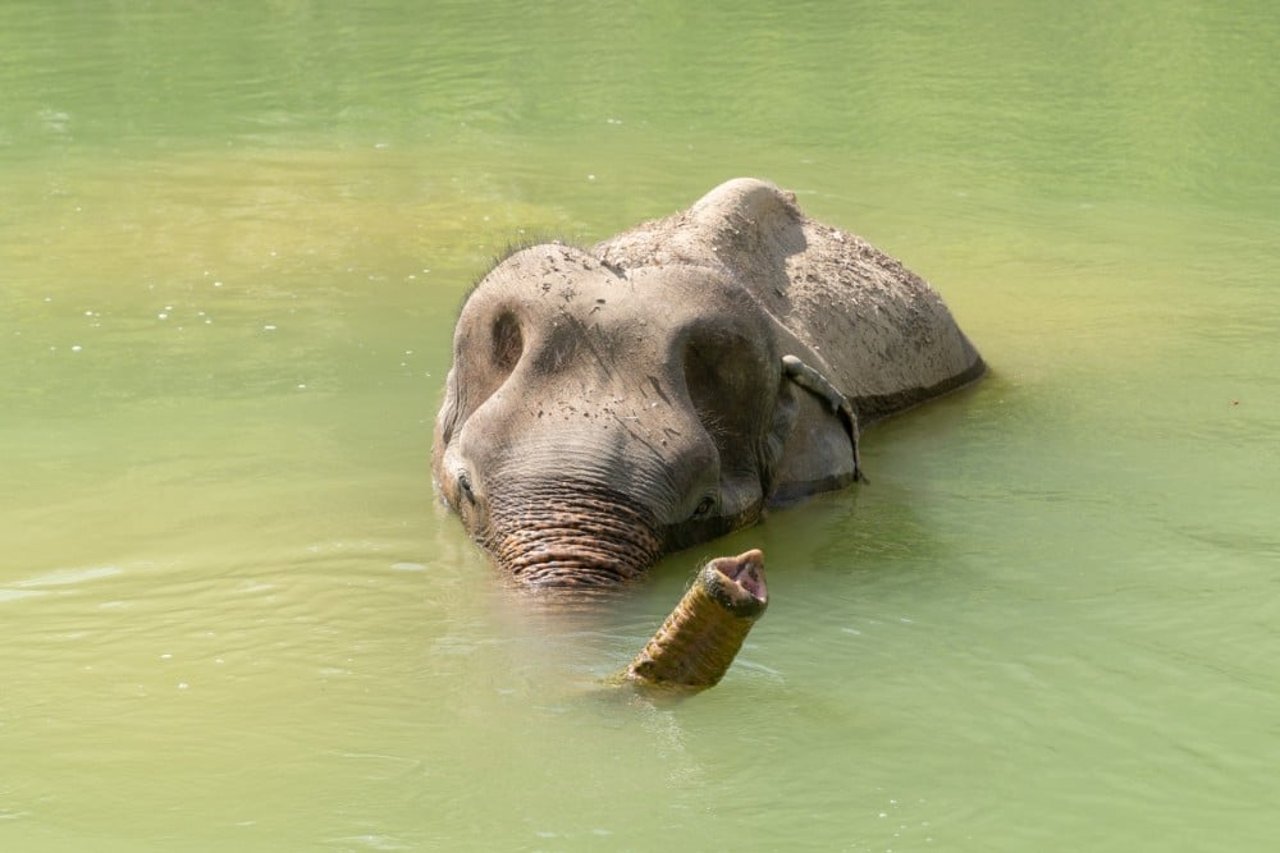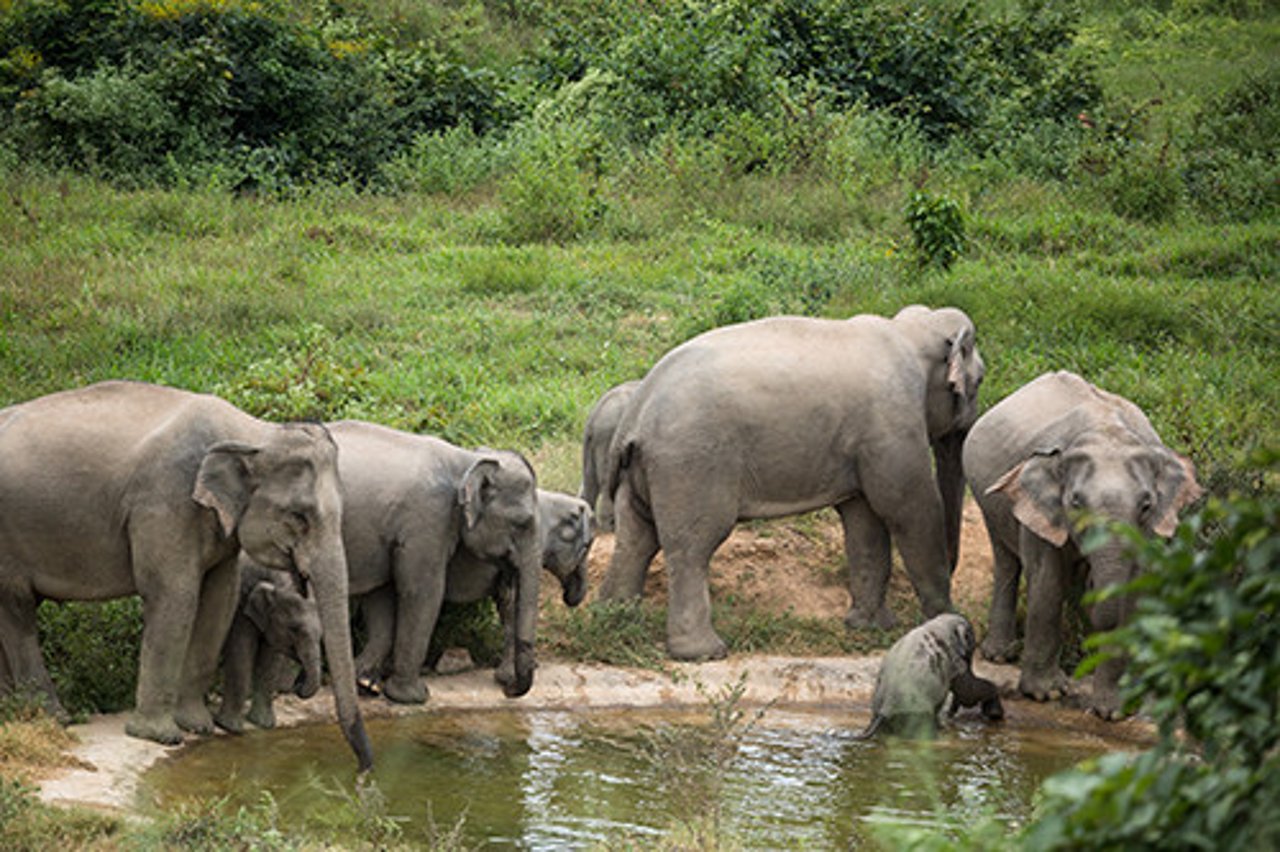
Eight extraordinary elephant facts
News
Elephants, our largest living land mammals, are much loved for their intelligence, strength and charisma. They form strong bonds with each other, have incredible memories and are great gardeners too.
Top image: iStock. by Getty Images
Let’s take a look at these extraordinary animals…
Brainy business
Elephants have big brains and incredible memories. There are reports of them remembering other elephants and people for years — even decades — after they last saw them.
This same great memory helps them, in times of drought, to navigate across the land to find watering holes they may have used decades ago. And like people, dolphins and great apes, elephants can also recognise themselves in a mirror.
Touching trunks
Elephant trunks are really highly sensitive and active long noses. Because they are made up of around 40,000 muscles, trunks can make very finely tuned, finger-like movements. People have reported Asian elephants picking up a peanut, shelling it, blowing the shell out and eating the nut.
Trunks are vital drinking and swimming tools too. They can hold up to eight litres of water, and act as snorkels when their owners swim underwater.
Walking wild
Left to their own devices, elephants travel great distances. Their territory can range up to 30km². And in a single day they could travel up to 10km in thick forests, and even further through grasslands.
Saving the planet
Elephants are great gardeners. Because of this, whole ecosystems depend on them. They shape the landscape by uprooting and felling trees and digging for water with their tusks and trunks. Through their dung, they sow the seeds of plants, bushes and trees.
Their gardening activities help their environments regenerate and provide homes, shelter, food and water for many smaller animals.
Family matters
Female elephants are only able to become pregnant during few days each year. Male elephants are ready to mate when they come into ‘musth’. This happens once a year and lasts for two-three months when they experience very high levels of reproduction hormones in their systems.
Elephant pregnancies are long – lasting around 20 to 22 months. Mothers are very closely bonded with their young. Calves stay with them for four to five years and then are closely supervised until they reach puberty. Females stay with their birth herds throughout their lives.
Living together
Elephants live in herds of usually up to 20 females and juveniles – although herds of more than 100 have been reported. Herds are usually, but not always, headed by a dominant female elephant.
Adult males normally travel alone from puberty. But they may join herds from time to time, or even form temporary all-male bachelor groups.
Good communications
Elephants communicate using all their senses and their bodies. Scientists have recorded at least 70 kinds of vocalisations 160 different visual and tactile signals, expressions, and gestures. Aside from roaring, rumbling, trumpeting and snorting sounds, some elephant noises are very low frequency. We can’t hear them, but elephants can – from up to 80 kilometres away.
Trunks are also important communication tools. They use them to touch, stroke and smell each other and to maintain their social bonds.
Wild decline and captive cruelty
There are around 38,000–52,000 Asian elephants and at least 472,269 African elephants remaining in the wild. Loss of their natural habitats and poaching are threatening the survival of wild elephants throughout Africa and Asia.
Around 14,000 – 16,000 elephants are held captive in Asia for use in logging, village work, tourism and temples. And several hundred are held at tourist venues in Africa – mostly South and Southern Africa – where they are used for riding, selfies, performances and other tourist entertainment.
With your help, we will stop the cruelty that captivity, tourism and entertainment causes them. Together, we can keep elephants in the wild where they belong.
Elephants are great gardeners. Because of this, whole ecosystems depend on them.

